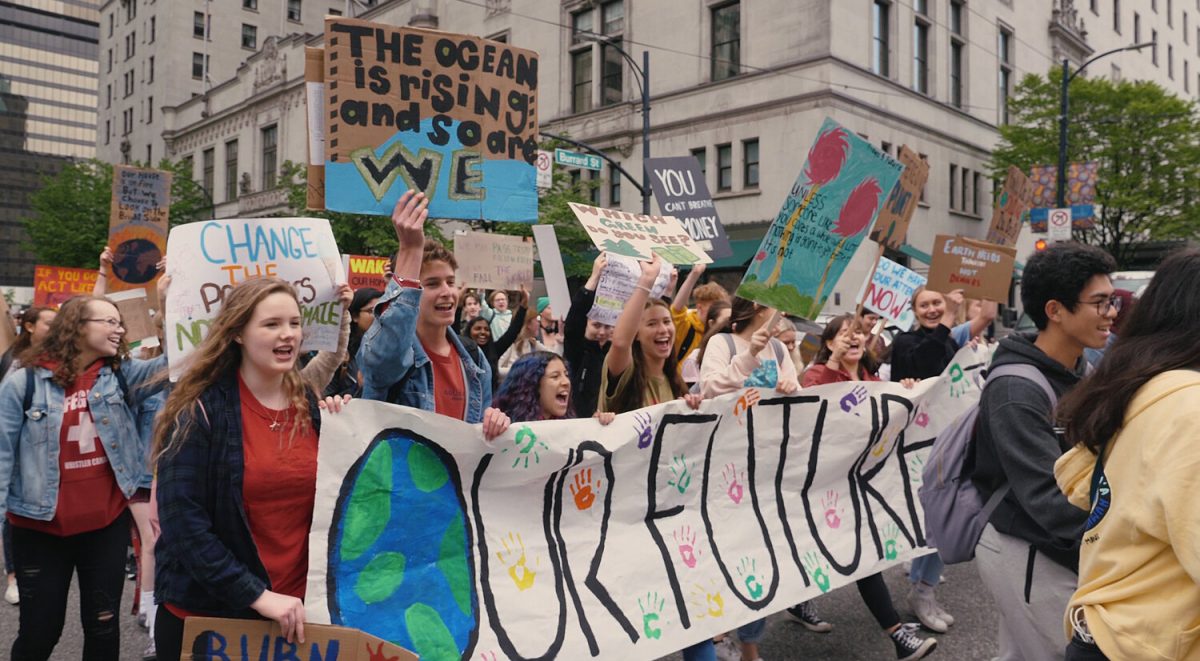
The six days of our training – Climate Justice – Just a Game? is over.
This training was the first part of 3 international activities focused on climate justice, education and gamification. During this cycle, the participants will create a card game together by the leading experts.
What can every human being do for climate justice?
The training team tried to think about this question and find solutions, and how the aspects of climate justice can be addressed in a card game.
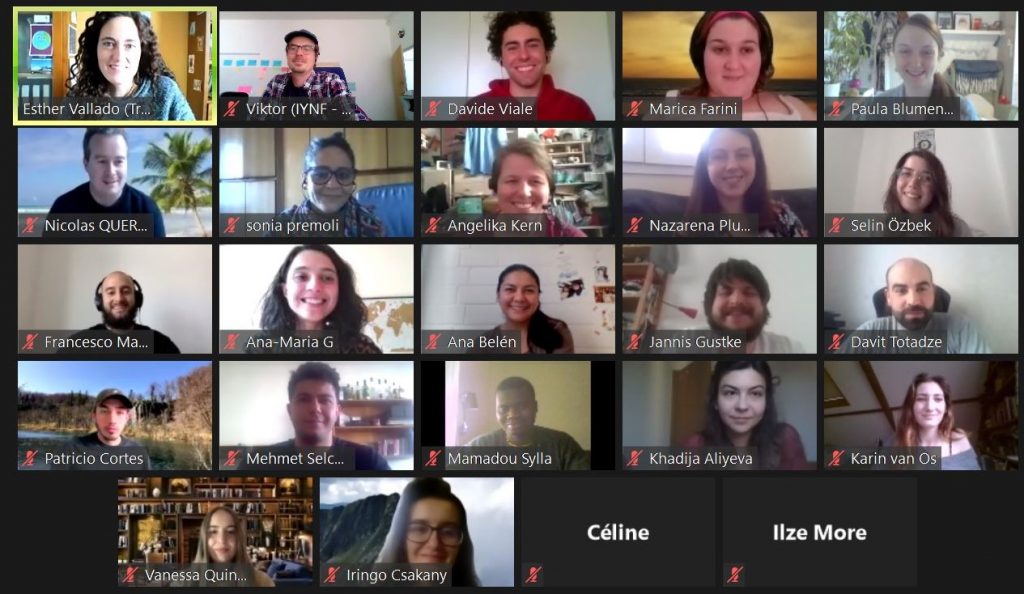
Marica
Before starting the training “Climate Justice – Just a Game?”, I didn’t know what to expect. I mean, I knew what it was about and the topics we would have covered but I was afraid of not being involved that much in the activities or to feel a little bit bored.
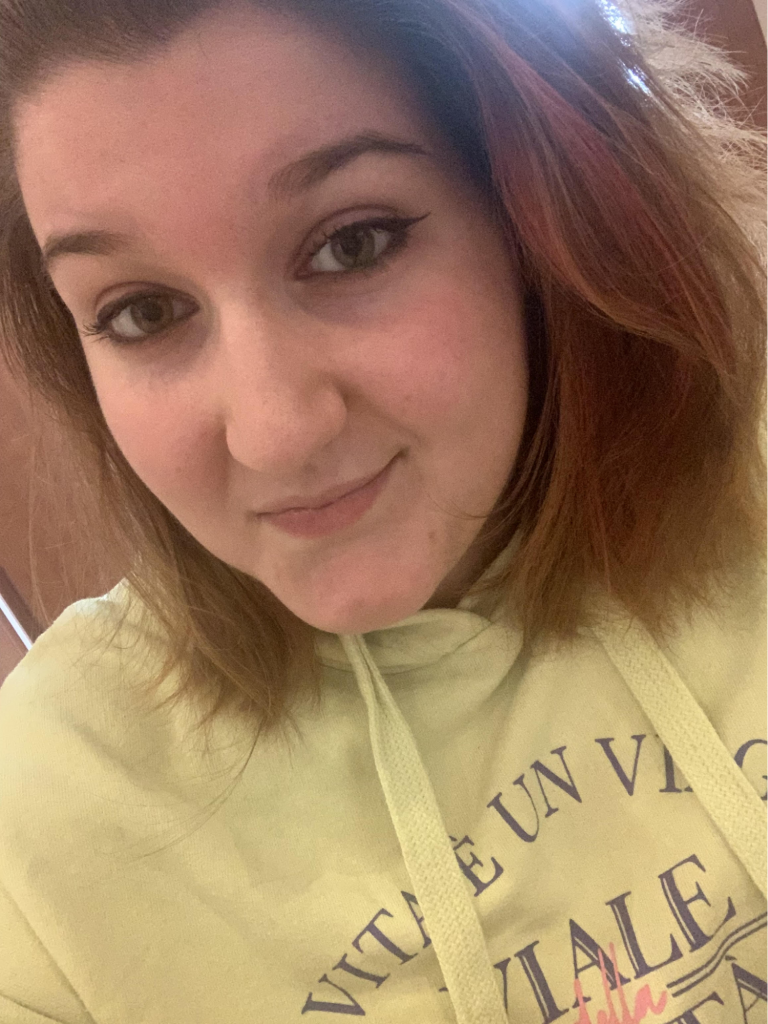
Instead, it turned out to be the opposite of what I thought: the two facilitators, Paula and Esther, managed to create a community atmosphere and the presentations they did were extremely inspiring and detailed, giving me lots of new notions and insights about what’s happening to the environment. In fact, one moment I liked a lot was Paula’s presentation about whether climate change is a hoax, because she showed facts and data which were very scary, demonstrating that climate change is something real and we can do something to change the current scenario. However, one other stimulating part about the training was when we had to share the memes and explain how climate change affected each participant’s country.
I really enjoyed it because I could learn many things about environmental issues around the world from different perspectives but, above all, from people who were actually from those countries. Overall, even if it wasn’t easy to stay all those hours in front of a screen and remain focused, I think this training gave me a lot of practical perspectives that can be useful for my further studies but also to change some things about my lifestyle which can help me to live in a more sustainable way.
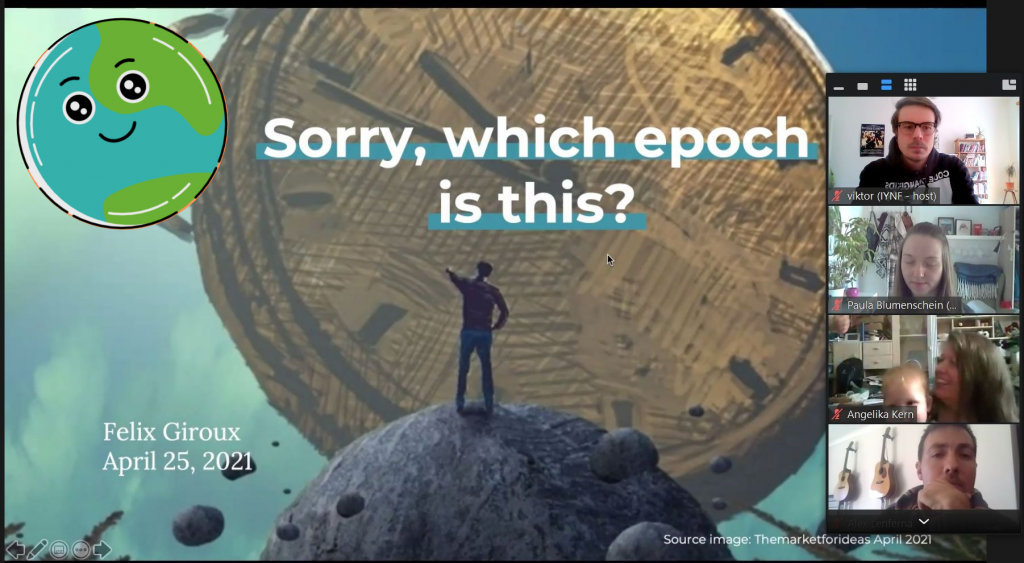
Francesco
Over the last two weekends, I participated in the first of three parts of the training course “Climate Games – The Way to Justice!”. The goal of the project is to develop a card game about climate justice, and to present it at a conference in November. Being only the first part of three, these two weekends were an introduction to the topics of climate change, climate justice and the concept of gamification.

Before starting the training course, I was worried that everybody knew more about the topics than I did and that this would prevent me from contributing. Instead, the trainers and the more knowledgeable participants took a very inclusive approach to the sessions, wanting to share the knowledge without excluding anyone.
The majority of the sessions during the training were held by our two trainers Paula and Esther, but we also had the opportunity to listen to some experts, Felix, Alex and Carmine who all organized and held their own sessions. During the second weekend, we had the opportunity to see the short film “What about Our Future?” and have a chat with the filmmakers, Jamie and Claudio, and Rebecca, who is the main focus of the film.
The screening of the short film was definitely the highlight of the two weekends for me, the movie is really well shot and portrays a beautiful story, and being able to hear from the filmmakers and Rebecca afterwards was very inspiring. In general, I learned a lot about climate change, climate justice and the concept of gamification, and participating in the activity gave me more motivation to act and use the newly acquired knowledge.
Despite it being online, it was a great experience, it was informative but fun at the same time. I believe we created a good group with the other participants, and so I want to say thank you to them. At the same time I want to thank Viktor for organizing and hosting, to Paula and Esther for facilitating and to Alex, Carmine and Felix for their great contributions.
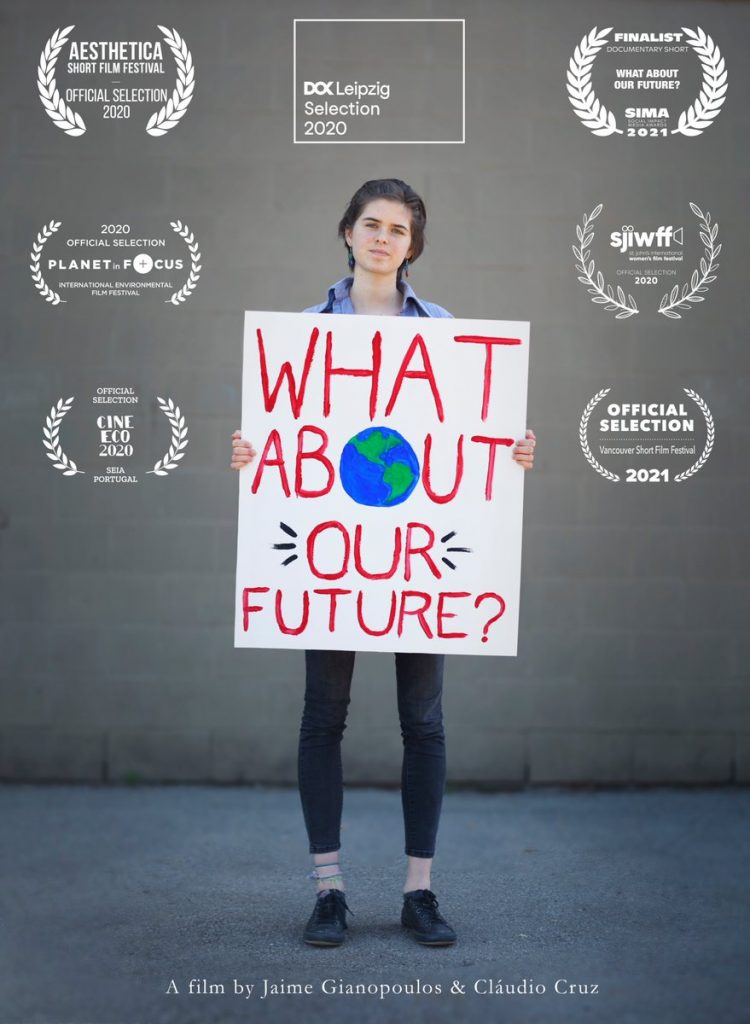
Khadija
Global climate change is the most urgent environmental problem for the world and its population. So, this training led us to understand that we can change the world with even the smallest thing, whether it’s a game or something else. The essential is to have the main desire to do what we can.
The workshops in the session were interactive, with the necessary theoretical knowledge and various practical activities, individual tasks, and discussions within the group work. The trainers guided us to get knowledge of climate justice principles, regional differences, and their connections with the educational games. We are on the way to create an initial plan and concept for the card game and look forward to creating our game connected to the topic.

There were passionate participants, who were interested in learning more about climate justice and educational games and were sharing IYNF goals and values from the different countries. Participants showed motivation and willingness to share their knowledge about climate change and take an active role in the development of the game. Everyone shared the situation in their countries about climate change and its consequences. This introduced other participants to the situation in different countries and supported learning from each-others. The participants started by introducing themselves, their countries, their professional life and hobbies in pictures with peculiar motivations, concerns and fears, and in the last minutes of the training they said goodbye to each other in a very kind environment.
Someone can feel dissatisfied, when the issue is about to participate in an online training/meeting/event. Disappointment, ruined travel plans, and other feelings related to this. Nevertheless, at the end of the training, it was possible to see the sincere smile and satisfaction on everyone’s faces. The facilitators were able to make changes to the training program professionally, and make the training more interesting, considering the feedback of the participants during the training.
During the intersessional week we enjoyed our challenge of the week. We came up with different ideas about the Memes of our countries’ situations on climate change in different centuries. The other task for the week was the interviews on climate justice, experience about a lack of climate justice in each country and the ideas how to ensure climate justice. My interviewee was Ayan Shamchiyeva, the executive member of Naturefriends Azerbaijan. I really appreciated her knowledge and approach on this topic.
Learning about footprint and how to calculate it was new information for me. This information helped us to look through their daily life and think about how to lower our footprint, find solutions to this, and how to implement them in our local communities and try to change our habits, as well.
Other practical activity about the privilege of people woke up my empathy for 13 years old Sarah, who is one of four children and lives with her parents in a prefabricated housing estate in Birmingham, UK. Sarah’s family can’t afford to pay for her school trip, because her father has been unemployed for three years and mother earns some money with occasional cleaning jobs.
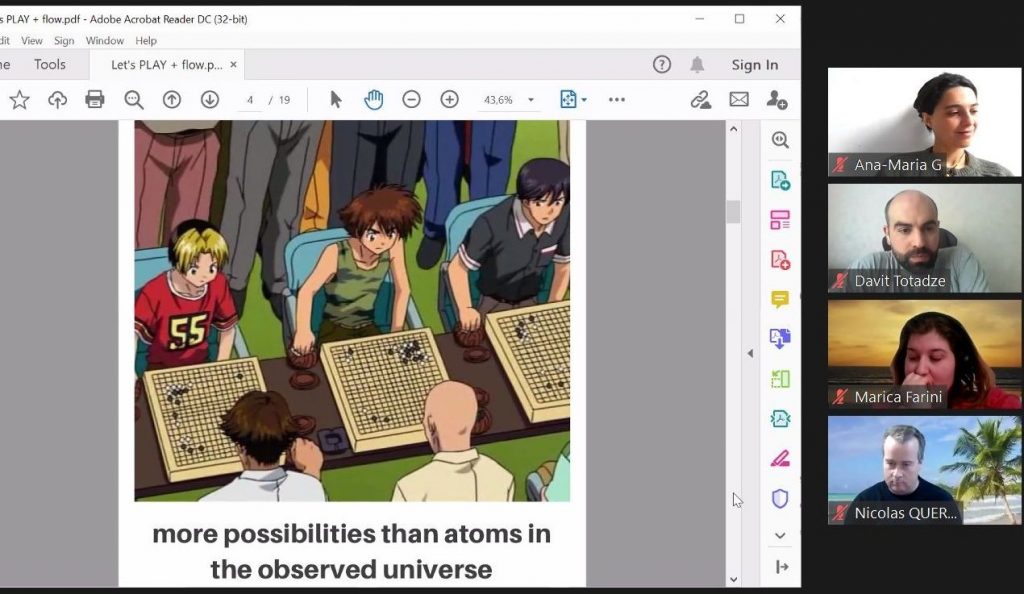
I liked the idea about the research of different games and their explanation in the groups and playing those games with the group members after the training. I think this is a good way of keeping participants in touch even post-training.
Interesting videos, documentaries, movies, books, stories, sources regarding the topic were recommended in the course of the session.
The different amusing digital tools made fun in the training. Participants, also were delighted and motivated by the enjoyable music, during the breaks.
Additionally, the delicious tomatoes, which we planted by ourselves will await us in the next training.
We welcomed also the guests Alex and Félix and they had prepared amazing presentations on “Principles to think beyond the Anthropocene” and “Role of humans in climate solutions” for us. Another guest Carmine helped us to learn and understand the impact of the games on cultural diversity and problem solving, its’ history and technical components, at the same time. Thanks to him I already know that there are different types of fun in the games, such as hard fun, serious fun, easy fun, people fun.
I really liked that we had the optional evening programs, like watching the short documentary “What about our future?”. We had a chance to have a discussion with the filmmakers and the main protagonist Rebecca. A group of teenagers from Vancouver, Canada, who are not indifferent to the future of the planet have set up a group to draw attention to the dangers of climate change in this screening. Including Rovshan Allahverdiyev, the executive member of Naturefriends of Azerbaijan, everyone, who is interested, was able to enjoy the presentation of this documentary.
I had the pleasure of volunteering in the pre-training organizing process, as well as being a participant in the session, and even now, by writing this article, conveying the pleasant atmosphere of the training to others.
Many thanks to very nice participants and gorgeous facilitators Esther, Paula and Viktor for making this training such an enjoyable and well-organized.
To be continued in August, hopefully in Lahti, Finland!
This project was kindly supported by Erasmus+, the European Solidarity Corps and the European Youth Foundation.

